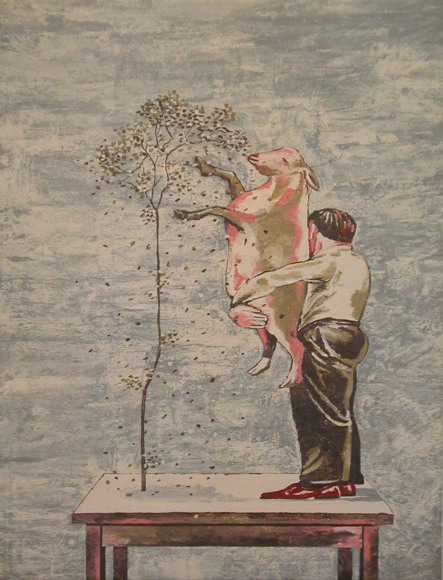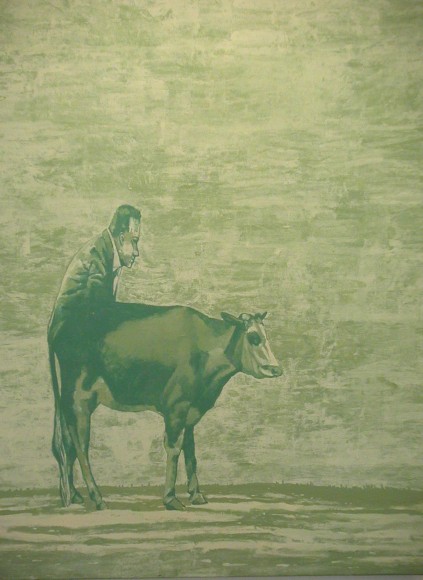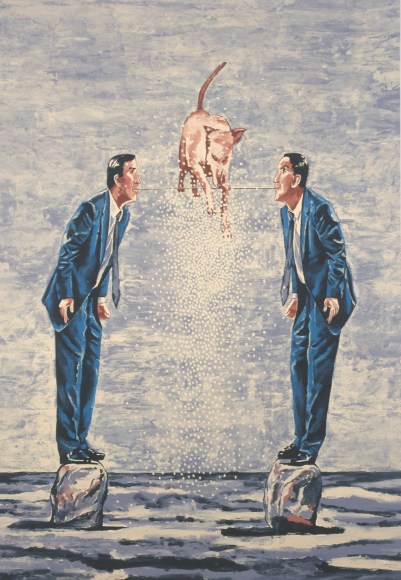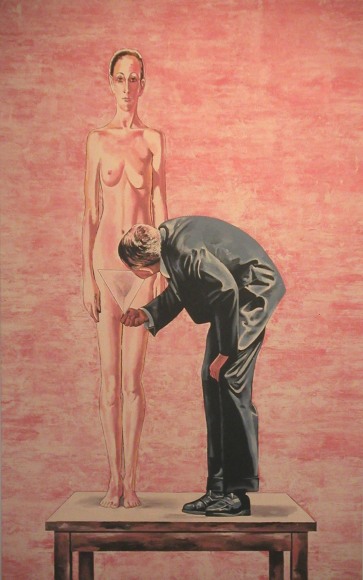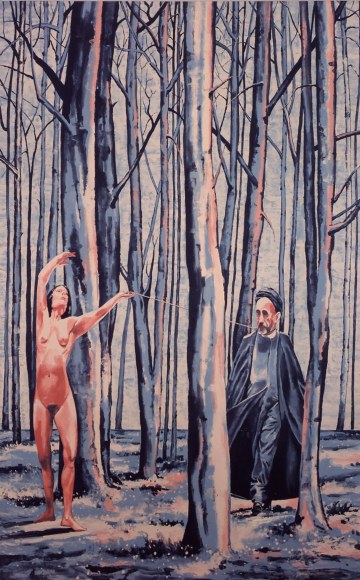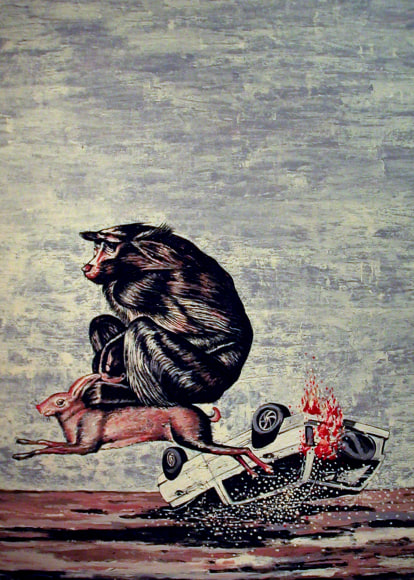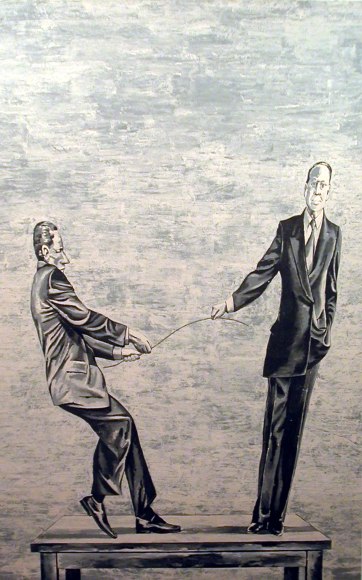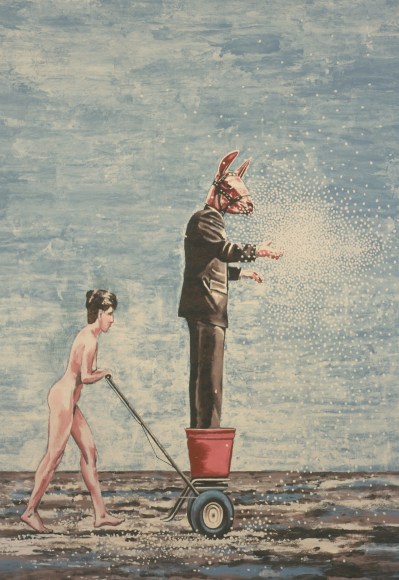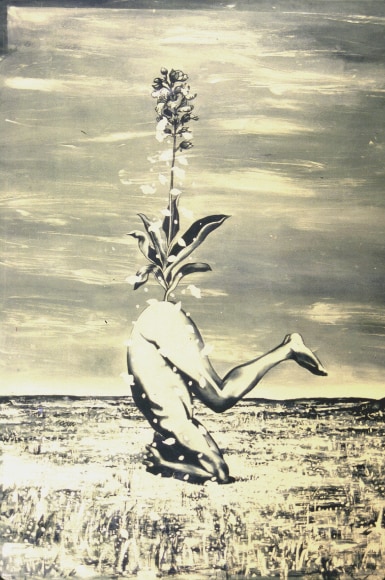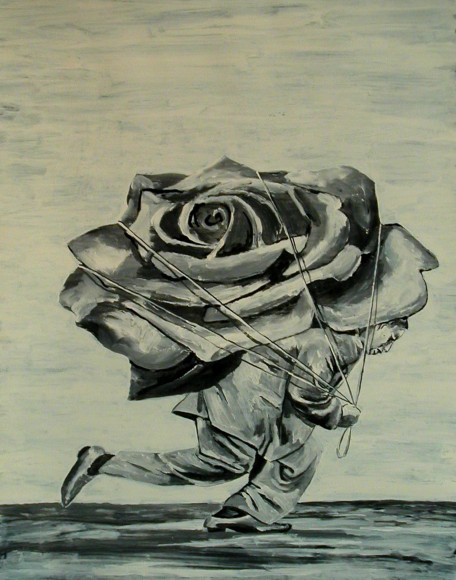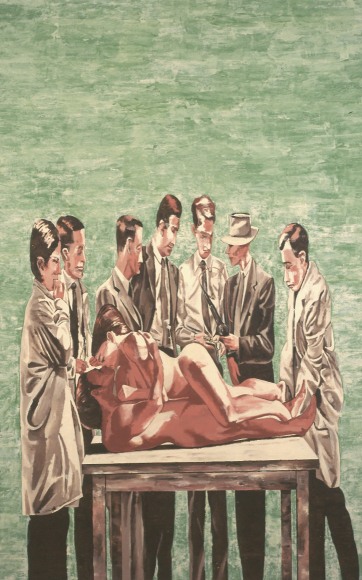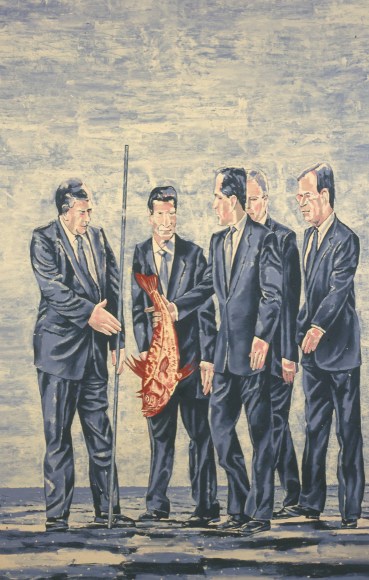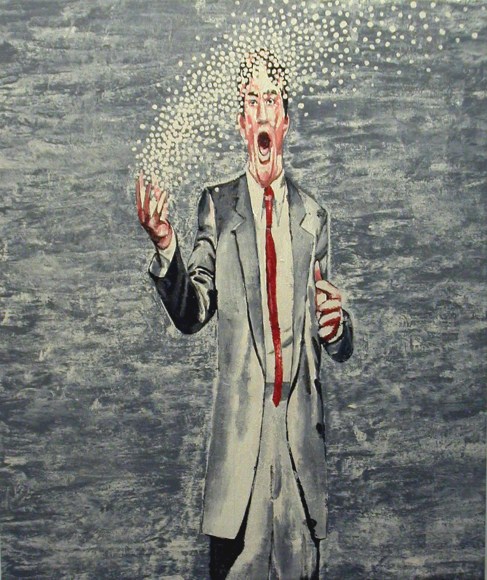Nicky Nodjoumi, an Iranian born artist living in New York, is a prominent figure in the development of the modern & contemporary art movement in Iran before and after the Islamic revolution. Since his migration to the United States (1970's), Mr. Nodjoumi has continued to paint and has created a large body of work. Nodjoumi's exhibition of recent paintings at Stux Gallery, marks this extraordinary artist's first major solo exhibition in New York.
At first look, Mr. Nodjoumi's politically charged paintings read as a poignant critique of people of 'power', whether religious or governmental, Muslim or American. These obscure narratives intelligently and humorously confront the viewer with the absurdity and hypocrisy behind those characters who control our lives. His symbolism shifts back and forth from political icons of his own country Iran such as the Mullahs, to generically portrayed, black suited American men. Yet, what is candidly hidden behind the political iconography of Mr. Nodjoumi's paintings is a deeply personal narrative. One sees through the artist's subconscious, facing his own existential anxieties in life, that of the experience of exile, repression, taboos, alienation and mortality. Ultimately what makes Mr. Nodjoumi's paintings powerful is that delicate juncture he maintains in between the 'self' and the 'society', the 'individual' and the 'universe', preventing his narratives from falling into the realms of either sentimentality or didacticism.
Mr. Nodjoumi's paintings also profit a great deal from a poetic language that is rooted in his cultural tradition of a Persian background. He relies on visual metaphors to express the complex fabric of human mind and spirit forever in conflict. This poetic construction helps him to neutralize the political dimension of the narratives and eventually creates a deeply emotional, spiritual landscape that every one of us might identify with.
Finally, viewing Mr. Nodjoumi's art retrospectively, one discovers that this artist has never been interested in creating ethnically specific art. He is an artist with a universal vision, who finds no boundary acceptable in that search for the 'truth', whether through an inner or outer world.

